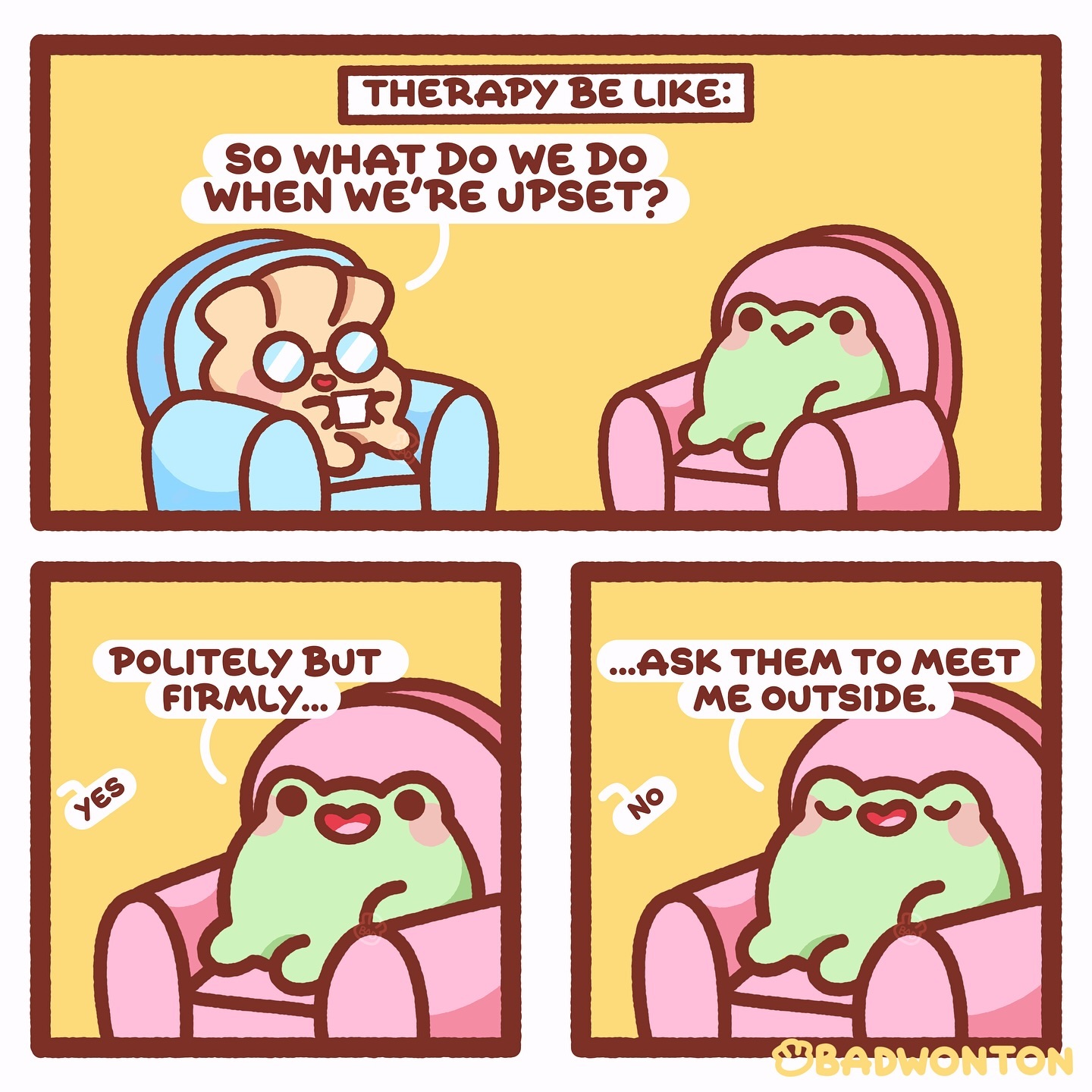this post was submitted on 31 Jul 2024
483 points (98.0% liked)
Comic Strips
12725 readers
2173 users here now
Comic Strips is a community for those who love comic stories.
The rules are simple:
- The post can be a single image, an image gallery, or a link to a specific comic hosted on another site (the author's website, for instance).
- The comic must be a complete story.
- If it is an external link, it must be to a specific story, not to the root of the site.
- You may post comics from others or your own.
- If you are posting a comic of your own, a maximum of one per week is allowed (I know, your comics are great, but this rule helps avoid spam).
- The comic can be in any language, but if it's not in English, OP must include an English translation in the post's 'body' field (note: you don't need to select a specific language when posting a comic).
- Politeness.
- Adult content is not allowed. This community aims to be fun for people of all ages.
Web of links
- !linuxmemes@lemmy.world: "I use Arch btw"
- !memes@lemmy.world: memes (you don't say!)
founded 1 year ago
MODERATORS
you are viewing a single comment's thread
view the rest of the comments
view the rest of the comments

Does anyone else here hate this specific usage of "we", forcedly including one speech participant when referring to the other?
I think it's fine in this context because presumably, the therapist and the client are on the same team, but I do dislike it in another situations where consent isn't necessarily as strongly implied.
Agreed -- one of the techniques in therapy is for the therapist to model positive behavior or perspectives for the patient, rather than simply dictating to the patient what they should or shouldn't do: "We" are working together to find coping skills that will reduce the distress "we" feel.
But outside of a safe therapeutic environment, that "we wouldn't want that" or "we don't do that sort of thing" can be super dismissive and demeaning -- like how a parent would speak to a child.
Yes, that's precisely what I meant. Thanks for fleshing it out.
I think you're looking at it wrong, it doesn't forcibly include the other participant, the usage you're talking about does the opposite
We [our shared group] don't do that. We [me and my group] don't do that.
You can interpret it both ways - the first means "you broke the rule of the group", the second means "you're not one of us because you're not following our rules"
It's visceral because it gently tickles the "fear of exclusion" part of our brain
That's an interesting take! After thinking a bit more on it, I think that it's going both ways, depending on utterance:
The later would work as you described, but the former also exerts some pressure - because rejecting someone from your group is a face-threatening act for both sides (i.e. "you're not one of us" is shitty to say for the hearer but also for the speaker themself).
Ah, I see what you were getting at now. Like "where are we going tonight?", it's a mirroring of the same concept, I think it's fair to call that forced inclusion. Like you say, directly excluding someone is rude, so forcing that choice is pretty manipulative